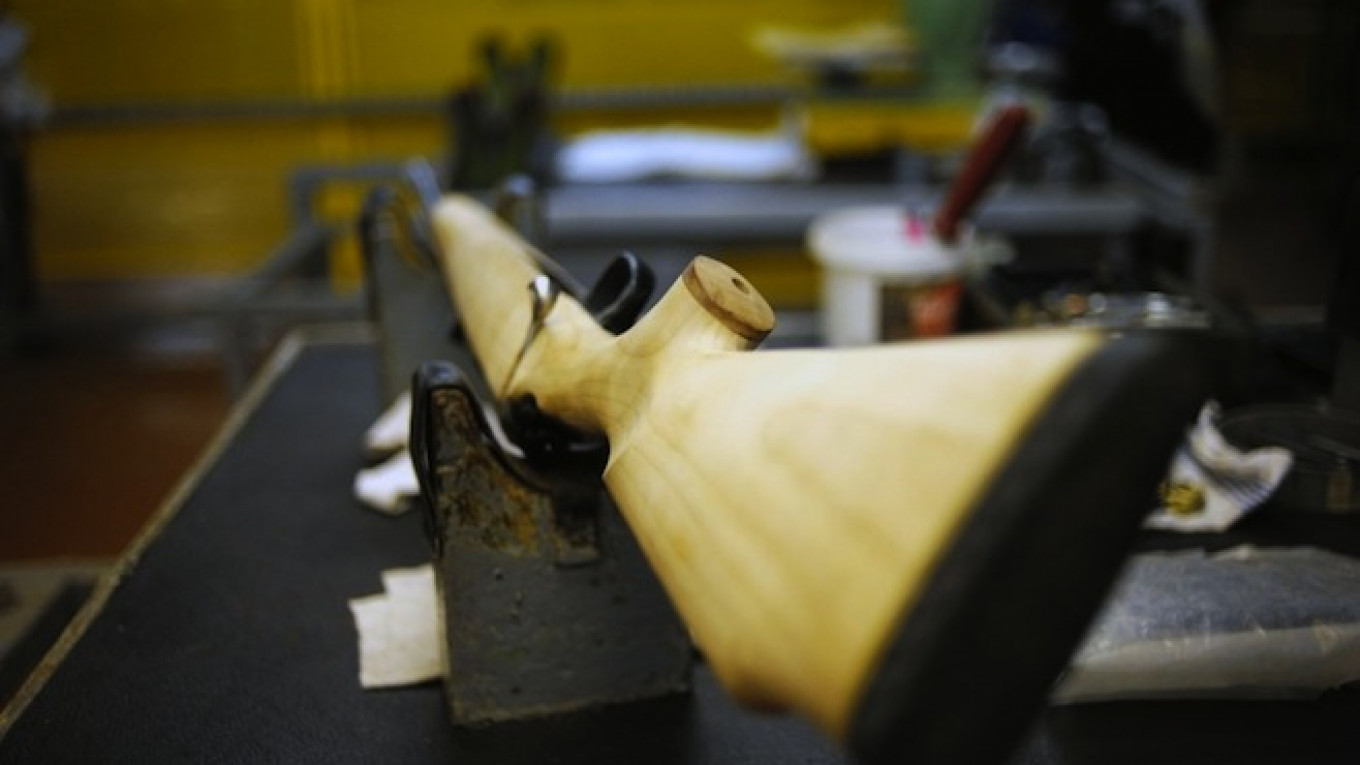The Defense Ministry is working on a system to keep track of Russian military innovations at home and abroad in an attempt to wrestle control of copyrights on Soviet-era equipment away from a global industry of imitators, state news agency RIA Novosti reported Wednesday.
"The copying of our exported military products is a very big problem," Defense Ministry official Oleg Vashchenko was quoted as saying.
The ministry will focus on preparing legal claims against manufacturers of unlicensed copies of Russian military hardware, who often use Soviet-era production facilities in former Warsaw Pact countries and even China.
"Of course, we can't scream that they were stolen from us," Vashchenko said. "We need a civilized means to resolve legal issues, to establish a legal claim in defense of the interests of the state."
Russia is the second-largest arms exporter in the world, and the country's military-industrial complex makes a large portion of its income from overseas sales. Exported equipment can be sold at over two times the price given to the Russian Defense Ministry.
With an economic downturn squeezing the federal budget, the government has reduced spending in all areas except defense procurement this year. However, if the economic situation worsens, the defense industry may not be spared — leaving exports more important than ever.
One of the most copied Russian weapons is the iconic AK-47 rifle. When the U.S. sanctioned the weapon's Russian Kalashnikov manufacturer last year, gun owners in the United States found they could still get their hands on one of the many exact copies produced in Bulgaria, Poland, Romania, Serbia and China.
A Message from The Moscow Times:
Dear readers,
We are facing unprecedented challenges. Russia's Prosecutor General's Office has designated The Moscow Times as an "undesirable" organization, criminalizing our work and putting our staff at risk of prosecution. This follows our earlier unjust labeling as a "foreign agent."
These actions are direct attempts to silence independent journalism in Russia. The authorities claim our work "discredits the decisions of the Russian leadership." We see things differently: we strive to provide accurate, unbiased reporting on Russia.
We, the journalists of The Moscow Times, refuse to be silenced. But to continue our work, we need your help.
Your support, no matter how small, makes a world of difference. If you can, please support us monthly starting from just $2. It's quick to set up, and every contribution makes a significant impact.
By supporting The Moscow Times, you're defending open, independent journalism in the face of repression. Thank you for standing with us.
Remind me later.






